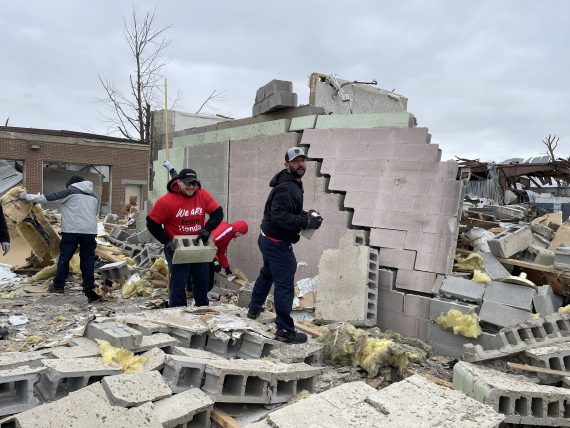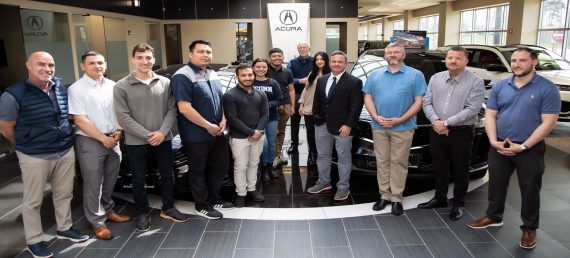The Impact of Historically Black Colleges and Universities (HBCUs)
In celebration of Black History Month, some Honda leaders who attended HBCUs share their experiences and discuss Honda’s support for these institutions. Will Walton, business unit head and vice president of Power Equipment at American Honda shares his experience.
Walton is a graduate of Morehouse College, an HBCU located in Atlanta, GA, and leads the development of strategic business vision and direction for Honda’s Power Equipment business unit, including oversight for all power equipment and marine business lines. His career at Honda has spanned more than 20 years, during which he has served in a broad range of capacities and leadership positions including automotive service, parts and product planning operations.
Many people may be unfamiliar with Historically Black Colleges and Universities (HBCUs). For me, however, HBCUs represent excellence, connection, opportunity, and more importantly, responsibility. I chose to attend Morehouse College because of the reputation it had for producing leaders in our country and the rich traditions it had dating back to its founding in 1867.
Black Colleges and Universities each have their own unique character and history. The first colleges for African Americans were established largely through the efforts of philanthropists and Black churches in Pennsylvania and Ohio. The first of which was Cheyney University, founded in 1837. Other HBCU’s were founded just after the Civil War. Later, a federal law in 1890 required states—particularly former confederate states—to establish land-grants for institutions for African American students whenever a land-grant institution was established and restricted to white students. Such notable figures as W.E.B. Du Bois, Ida B. Wells, Booker T. Washington, Toni Morrison and Dr. Martin Luther King Jr. attended an HBCU.
Some people have the misconception that HBCUs are only for African-American students, but this is not the case. Although the majority of HBCU students are African-American, all qualified students are welcome to apply.
Common among HBCUs is an environment for students to explore their collective identities and cultures, and a sense of community that the students and faculty enjoy; that sense of community was another reason I chose to attend an HBCU. Due to the small class sizes at Morehouse, I had direct access to all of my professors. Attending class and actively interacting and contributing were essential and, in fact, required. Shared experiences and constructive, respectful debate were a valuable part of my growth while at Morehouse.
For me, some of the unique benefits of attending an HBCU were:
- Course work that extended beyond traditional classes, which required critical thinking while challenging the traditional educational structure
- Direct yet nurturing guidance and support from faculty
- Nurturing a desire in me to give back to society, which continues to this day
- Life-long relationships with my fellow classmates
Honda has a strong and longstanding relationship with the HBCU community, and with furthering its educational objectives. Honda founded the Honda Campus All Star Challenge (HCASC) in 1989, a unique academic quiz tournament that features the best and brightest HBCU students. HCASC is so well-known around participating HBCUs, that it is referred to simply as “The Honda.” In 2003, Honda founded the Honda Battle of the Bands (HBOB), an invitational showcase that shines a bright light on the unique cultural richness and musical excellence of HBCU marching bands.
More recently, Honda and the Thurgood Marshall College Fund (TMCF) have partnered to recruit students from HBCUs for co-op/intern positions. I am proud and honored to serve as the Honda board member representative to the TMCF, helping to ensure public HBCU students are properly supported during their college years and that intern and career opportunities are presented to these bright students by the corporations which constitute the board. Being on the board of TMCF also provides Honda with great insight on how other major corporations are supporting diversity and inclusion initiatives with the new generation workforce.
In summary, I believe that without the contributions of HBCUs, our country would be less inclusive and advanced based on the many contributions provided by HBCUs and their alumni. The experience helped shape me, and I am grateful for the opportunities and relationships that attending an HBCU has provided me.
I am also thankful to work for a company that supports these significant institutions, which serve such a unique and important role in our system of higher education and in our society.

